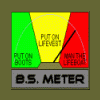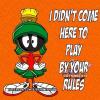Leaderboard
Popular Content
Showing content with the highest reputation on 06/27/2010 in all areas
-
Ok, I guess it's 'confession time' here.... As an EMT, I looked at a lot of the medics I came in contact with as 'pompous asses' because of their attitudes toward the lower license levels. This thread has forced me to re-evaluate my position. As I climb through the license level ranks, I find more and more that there’s so much I DON’T know. I’m not the first EMT to come to this stark realization, and I know I won’t be the last to ‘figure it out’. Working my way through EMT, then EMT-I and eventually onto EMT-P, I find that when I was a ‘mere EMT’ I thought I knew it all. This feeling was great to hold onto, and gave me confidence to do my job. Then I went on to the EMT-I portion, and realized that I didn’t ‘know it all’ like I thought I did. But I learned more, and still felt good about it all. I was still confident, but looked at things differently. When I started my medic class, I quickly learned that what I really knew nothing more than oxygen, stop bleeding; and keep broken body parts from moving. Those that know my story know that I had to drop my medic class for reasons beyond my control. I haven’t given up, and will be working toward getting into the next class. As I wait for the next class to start, I realize how painfully inadequate my education has been, and how much I still have to learn just to be able to call myself ‘competent’. Terms like ‘good, great and exceptional’ will just have to wait. I do not deserve them … yet. As with every ‘confession’ comes the opportunity to eat a little crow. I think I’ll have mine with a generous dose of A-1, to make it more palatable. To all the medics that I call ‘friend’: I offer each and every one of you a sincere apology. While I thought that many of you were ‘harsh’ in how you dealt with the lower license levels, I’ve come to realize that it wasn’t out of ‘meanness’. You were challenging me to not only prove you wrong, but also push me into learning more. For that, I owe each of you a great deal of thanks and appreciation. This confession serves as a warning to all of those medics (and the Doc’s too!): Since you all have pushed me into going further than I thought I could, each and every one of you will be ‘hit up’ as an information source with even more questions than I’ve already hit you with! To everyone else: This site is a great place to ask questions, debate theories and ultimately LEARN. These ‘grouchy old medics’ may seem harsh and ‘mean’, but they’re only want you to push to be the best that you can be. We’re taking people’s lives into our hands, and the patient’s deserve more! When the ‘old hands’ around here challenge your posts; whether for content or spelling/grammar, they aren’t being ‘meanie-heads’, they’re pushing you to correct the ‘little mistakes’ before they snowball into ‘big ones’. One misspelled word on a PCR can change the entire meaning. It’s been said that those that have successfully completed the medic course (especially with a degree), have ‘forgotten where they came from’. Some have gotten ‘arrogant’ because they’ve completed the course; but most appear to be coming from the same position that the previously addressed medics are. In the United States, our EMS education is very lacking in content. The cliché “You don’t know what you don’t know’ is so very true. The ONLY way to get a glimpse of this is to pursue your education above and beyond the minimal course called ‘Emergency Medical Technician – Basic’! When I finish my degree, I hope to remain the same person that some of you have come to know and at least ‘like’. I’m going to push you as I always have to get more education. I’ve had to re-evaluate what I thought I knew and now have to look at things much differently than I did from the ‘safety’ of my EMT-B world. I hope that many of you will find yourselves in the same position! ER Doc, Thanks for reviving this thread!3 points
-
With my experience with medic students I have a few things I would like all of you aspiring medics to remember... Nobody knows everything, so don't act like you do. There is a fine line between cockyness and confidence. A cocky medic is one not willing to take advice and learn. A confident medic will listen to his coworkers input. It is a very humbling experience to get on your own truck being the only medic for the first time. Use your experience with your fellow medics to learn as much as possible, so when they say something...LISTEN. There is a reason you are being told. You have to be a great EMT before you can be a good medic. Any medic will tell you that they would rather have a decent EMT at their side than a lazy medic. For your own good, Adam1 point
-
Having the similar topics section at the bottom has brought back some old and interesting past topics. I came across this one and thought it might be useful to bring it back from the dead after 4 years so that our new medic students can learn from it. I don't really have much to add to the thread excect, wear...sunscreen.1 point
-
Phil makes a good point here, actually. Not sure whether I would have been quite so blunt...but nevertheless.... MedCom is a way of avoiding responsibility. I'm not even really sure why, either. The people who hang around here seem to be pretty knowledgeable and committed. I'm sure most of you are more than up to the job of critical thinking in an acute situation. You don't need anyone to hald your hand for you. I can't help but wonder (genuinely wonder - this is NOT intended to be an inflammatory comment) whether our US colleagues have so gotten used to being told that they are at the bottom of the chain that they have started believing it themselves? I agree with Phil and Kiwi - MedCom is a cop out. WM1 point
-
Fiz, I think you will find it was I that used pain relief as an example, thats all it was. It wasn't just about first round doseing, it was about the administration of analgesia. Just so were clear, here is what I said Changes the relevance of your comment. A protocol is nothing more than a guideline. Again, using analgesia as an example, I can give up to 5mg bolus with repeat doses of 2.5 to 5mg every 2 mins to a max of 5.mg/kg. NO further questions asked. Why does it have to be a doctor? We have clinical assistance lines that perform the same function. If you have to ask this question, then you really need to have your accreditation reviewed. Lets see. The person is having severe respiritory distress issues. There is minimal air movement. I give dose 1. Slight implrovment. I give dose 2. Slight improvment. What the hell am i calling for advice or, either the patient needs their airway open to breath, or they die. If they have a cardiac event post epi, was it caused by the epi, or was it caused because the myocardium had been working too hard when they couldnt breathe? This one is a no brainer. STEMI, I agree, ECG is open to interpretation & you are better to be sure. Huh? This is prehospital care. You have a symptom, treat it. I had this discussion in the chat recently. EMS treats symptomatically. It is not up to us to determine most root causes & the person you are discribing needs the benefit of a HOSPITAL with doctors, nurses, & those wonderful things called pathology labs. Treat what you see/find, & get em to hospital, you dont need a doctor to tell you that. I agree there is much we dont know, however, they are not a consult. they are a CYA tool for lazy medics who fail to use their brain. They are a failsafe method for people to say I only did what I was told, a Neuremberg defence when it all goes to shit. Now your stuff. Treat what you see/find, get rid of medical control. Yes doctors consult, but they are usually having a consult over a patient who has more care than they can poke a stick at. They have usually got the patient through the critical period & are looking at the case retrospectivley to determine future treatments & how they may have improved past treatments.1 point
-
Let me add: Education is a mix of the time you spent in class and the experience you have yet to receive. Use the experiences of your peers to speed your own ascension to the top of your game. No matter how much time in class, how much time in the field, how many procedures you have under your belt, somewhere, sometime, you will have a patient that you are not prepared for. Understand this happens to everyone. You will not be the first, and it is an experience you have to go through, often on your own. Your response to this will help to determine where you stand in the grand scheme of prehospital care. If it happens early in your career, you will be tempted to find something else to do. If it takes a little while, you will be better prepared, and it will be much easier to handle. Learn to use the "old guys" for the support you need. They may not be entirely enthusiastic about pumping you up, but rest assured, they have all been through the same problems you are going through. They understand what you are dealing with like no one else can. Unless you act like a complete idiot, they will want you to succeed. If for no other reason, they won't have to work as much, if you do succeed.0 points
-
-1 points







